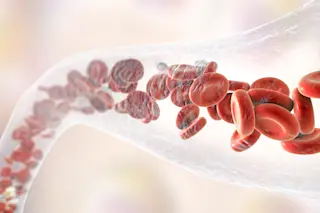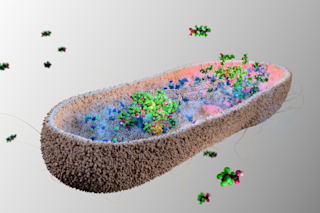Since potatoes are labeled as vegetables in U.S. dietary guidelines, most people assume they’re as good for you as leafy greens or carrots. But recent findings suggest we might need to be more careful about how we prepare, and how often we eat, this starchy staple, especially when it comes to type 2 diabetes (T2D).
Researchers from the Harvard T.H. Chan School of Public Health followed more than 205,000 people for nearly 40 years and found that just three servings of French fries per week was linked to a 20 percent increased risk of developing T2D.
But that's not a reason to ditch potatoes altogether. Not all methods of preparing potatoes carry the same risk. Also, what you choose to eat instead of potatoes matters, too.
Potatoes and Diabetes
Potatoes are the third most commonly consumed crop worldwide and a major non-cereal source of calories. According to a press release, they’re rich in fiber, vitamin C, and magnesium, but also high in rapidly digestible starch, which causes quick spikes in blood sugar. That starch content is one reason potatoes have been loosely linked to T2D risk in past research.
What makes this new study different is that it looked not just at potato consumption in general, but at how the potatoes were prepared, and what people ate instead when a serving of potatoes was swapped out.
How the Potato Is Prepared
The findings, published in The BMJ, drew on data from three long-running studies: the Nurses’ Health Study I and II and the Health Professionals Follow-Up Study. All participants didn’t have diabetes, heart disease, or cancer at the start and they filled out detailed food frequency questionnaires every four years.
Over the nearly four-decade span, more than 22,000 people developed type 2 diabetes. When researchers adjusted for other risk factors like physical activity, weight, and overall diet quality, they were able to zero in on the role potatoes might play: Each three-serving-per-week increase in total potato intake was linked to a 5 percent higher diabetes risk, but that number jumped to 20 percent when those servings came from French fries. In contrast, boiled, mashed, or baked potatoes weren’t significantly associated with higher diabetes risk.
The study also looked at the impact of swapping potatoes out for other carbohydrates. Replacing total potato intake with whole grains appeared to lower diabetes risk by 8 percent, and if the replacement specifically targeted French fries, the risk dropped by as much as 19 percent. Even swapping out baked, boiled, or mashed potatoes for whole grains offered a modest 4 percent risk reduction. But not all swaps were beneficial — substituting potatoes with white rice actually increased the risk of developing type 2 diabetes.
Balance Your Plate Wisely
The takeaway isn’t to avoid potatoes entirely, but to be mindful of both preparation and substitution. French fries are the clear culprit here, likely due to being deep-fried. On the other hand, baked or boiled potatoes can still fit into a healthy diet, especially when combining them with other healthy ingredients.
Experts caution that this was an observational study, which means it can’t prove cause and effect. Other lifestyle or genetic factors could play a role, and because most participants were white health professionals, the findings may not apply to everyone equally.
Still, the results are consistent with existing nutrition advice: Whole grains should be a go-to carb for reducing your risk of diabetes. But if you’re craving potatoes, there’s no need to panic; just skip the fries and balance your plate wisely.
As the researchers put it in the press statement: “Our findings underscore that the association between potato intake and type 2 diabetes risk depends on the specific foods used as replacement.” Future research in more diverse populations will help refine the message, but for now, it’s clear: how you prep your potatoes (and what you eat instead) can make a big difference.
This article is not offering medical advice and should be used for informational purposes only.
Read More: How Common Food Additives Are Linked to Type 2 Diabetes
Article Sources
Our writers at Discovermagazine.com use peer-reviewed studies and high-quality sources for our articles, and our editors review for scientific accuracy and editorial standards. Review the sources used below for this article:












